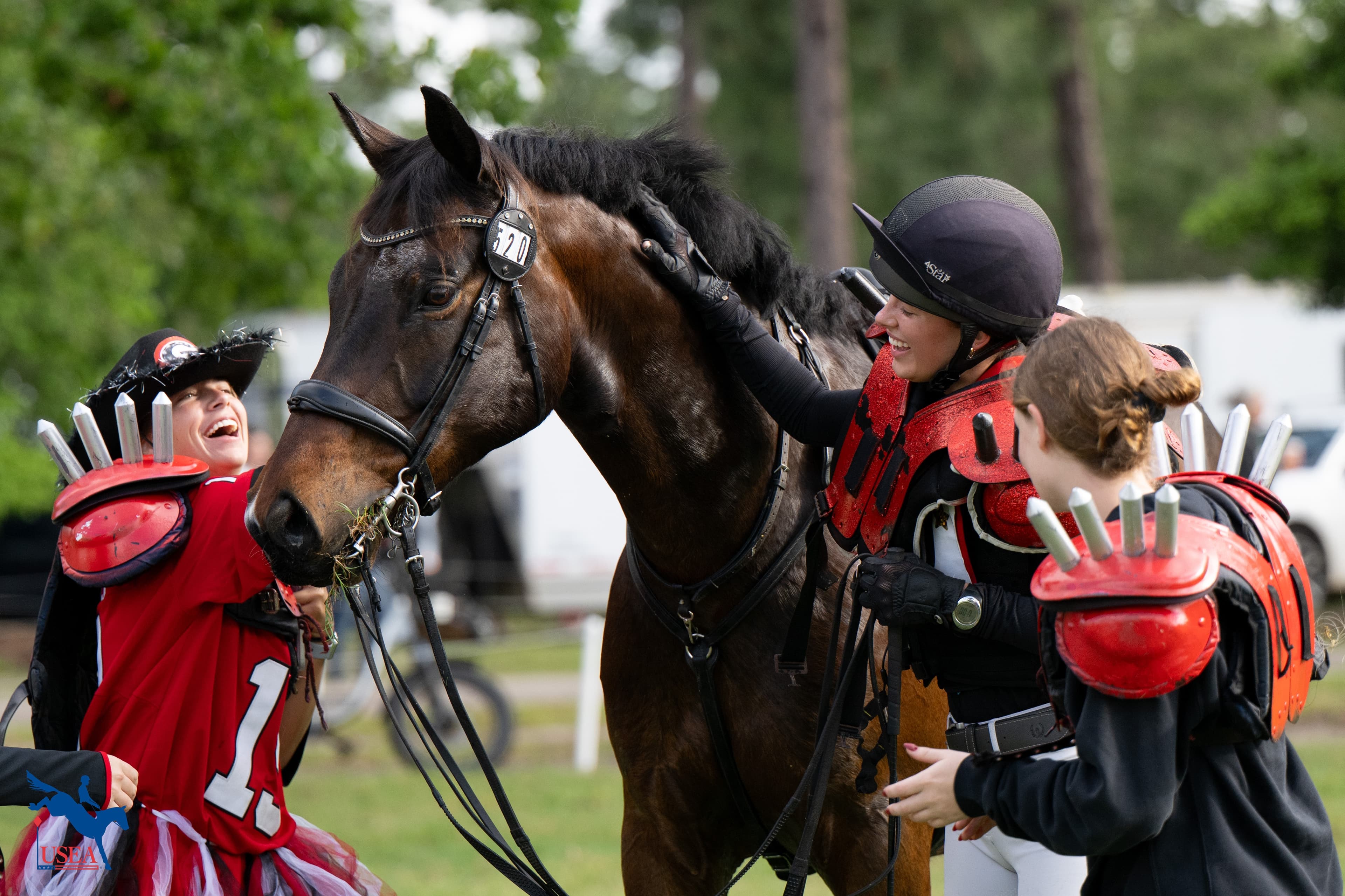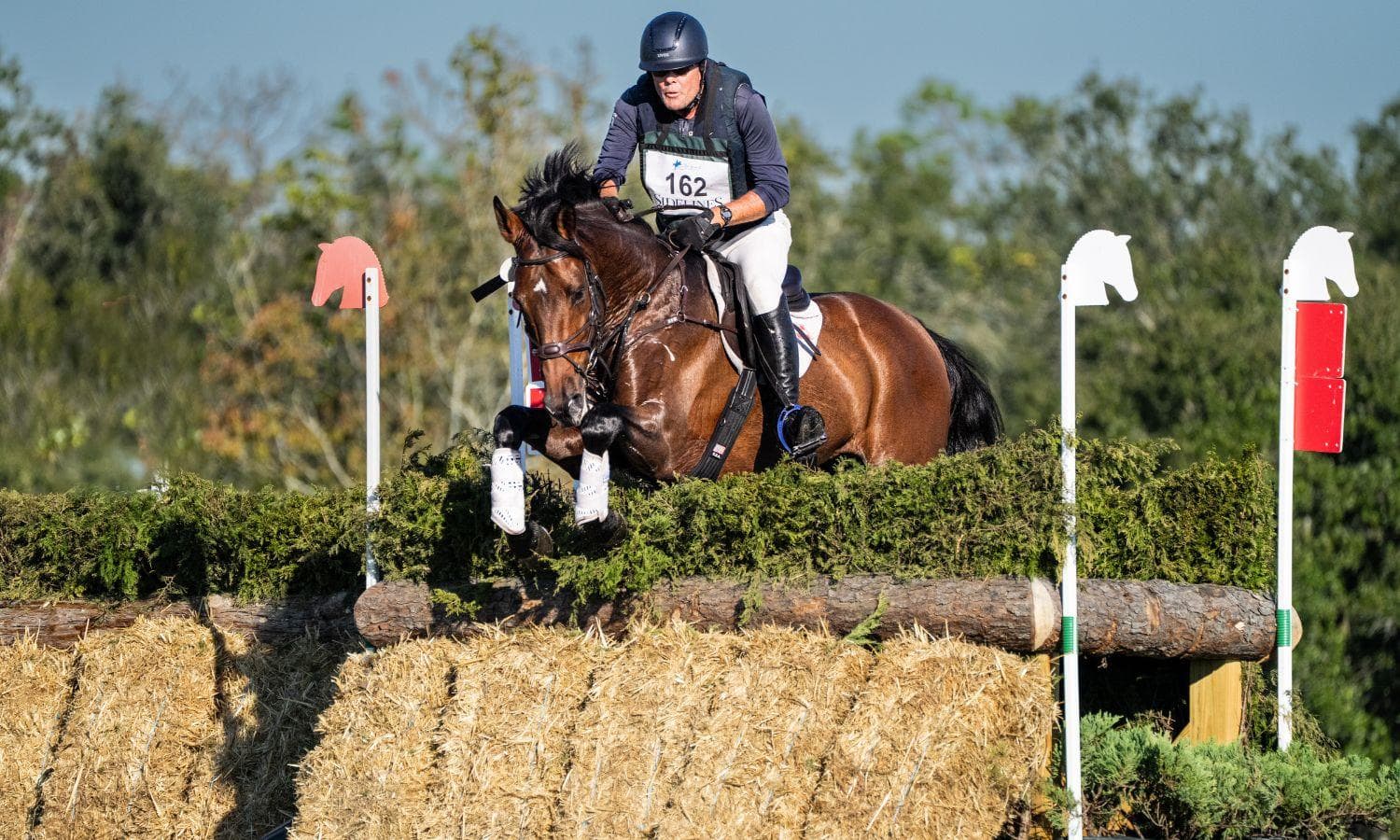'The Best $125 I Ever Spent.' Emily Graeser and Comic Relief Achieve Century Ride at Hunt Club Farms
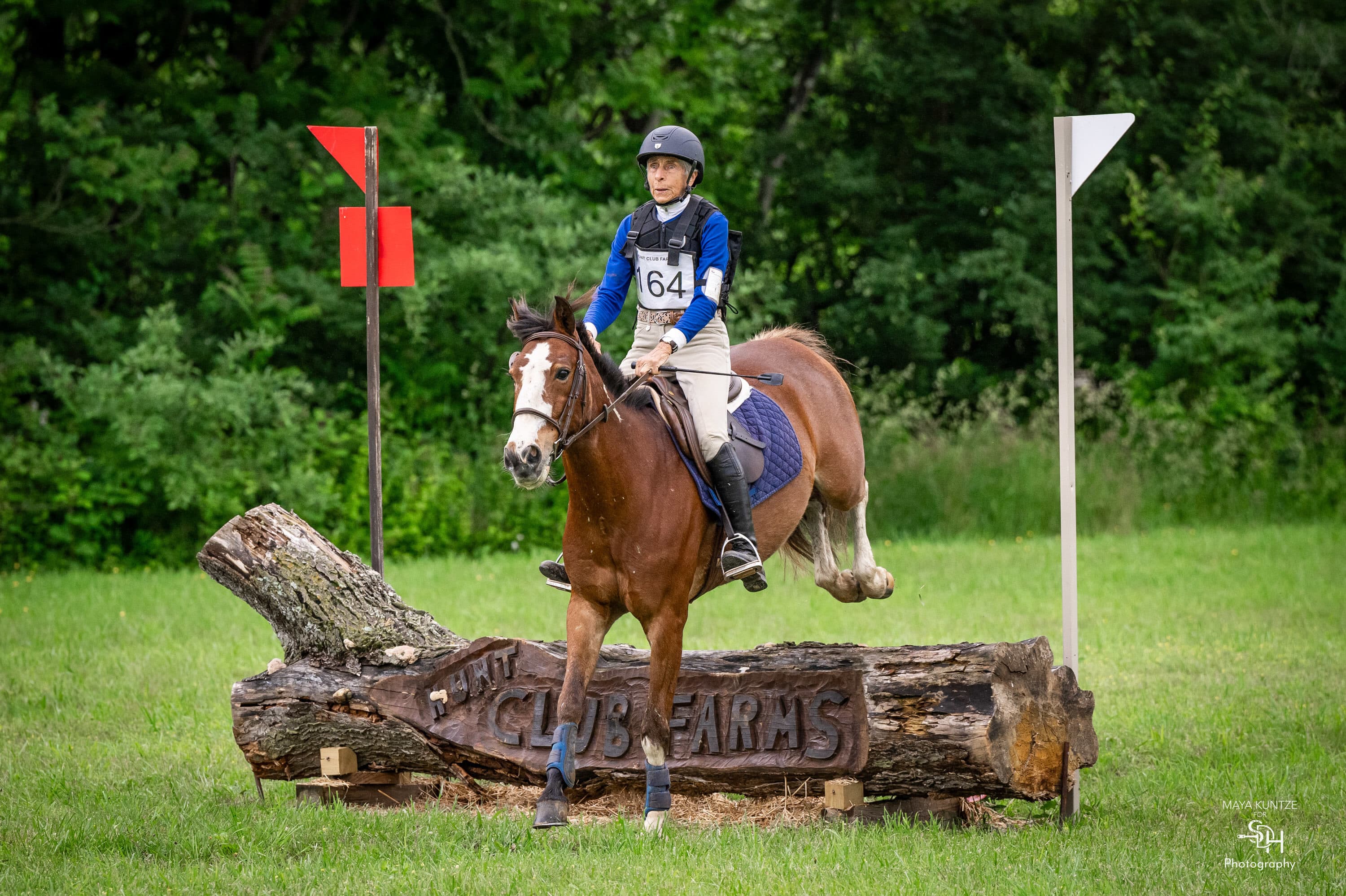
Emily Graeser just chuckles when someone asks her if she has considered switching to straight dressage now that she is 84 years young.
“I think to myself, yeah right,” she said with a laugh. “Eventing is an addiction; once you start, you can’t do anything else.”
While eventing is where her heart calls home now, she didn’t get her start in the sport. She had her first riding lesson at the age of 5 and spent much of her life in the hunter/jumper rings.
“By the time I was 14, my mom said to me, ‘Well you know how to ride now, so that is enough riding lessons. You should take ballroom dancing lessons and tennis lessons and piano lessons,’ and all the other things I didn’t want to do. There was no such thing as working students back in those days, you just kind of hung around at the barn and rode whatever was left over that nobody else wanted to ride. So that is what I did.”
That determination was what led her to her first horse when she was a senior in high school—a racing reject whose future wasn’t looking bright.
“As a 3- or 4-year-old he was on his way to the killers,” she shared. “They had deemed him a dangerous, uncontrollable outlaw. Basically, the people had taken him off the track and pushed him too hard, and rather than taking it lying down, he fought back.”
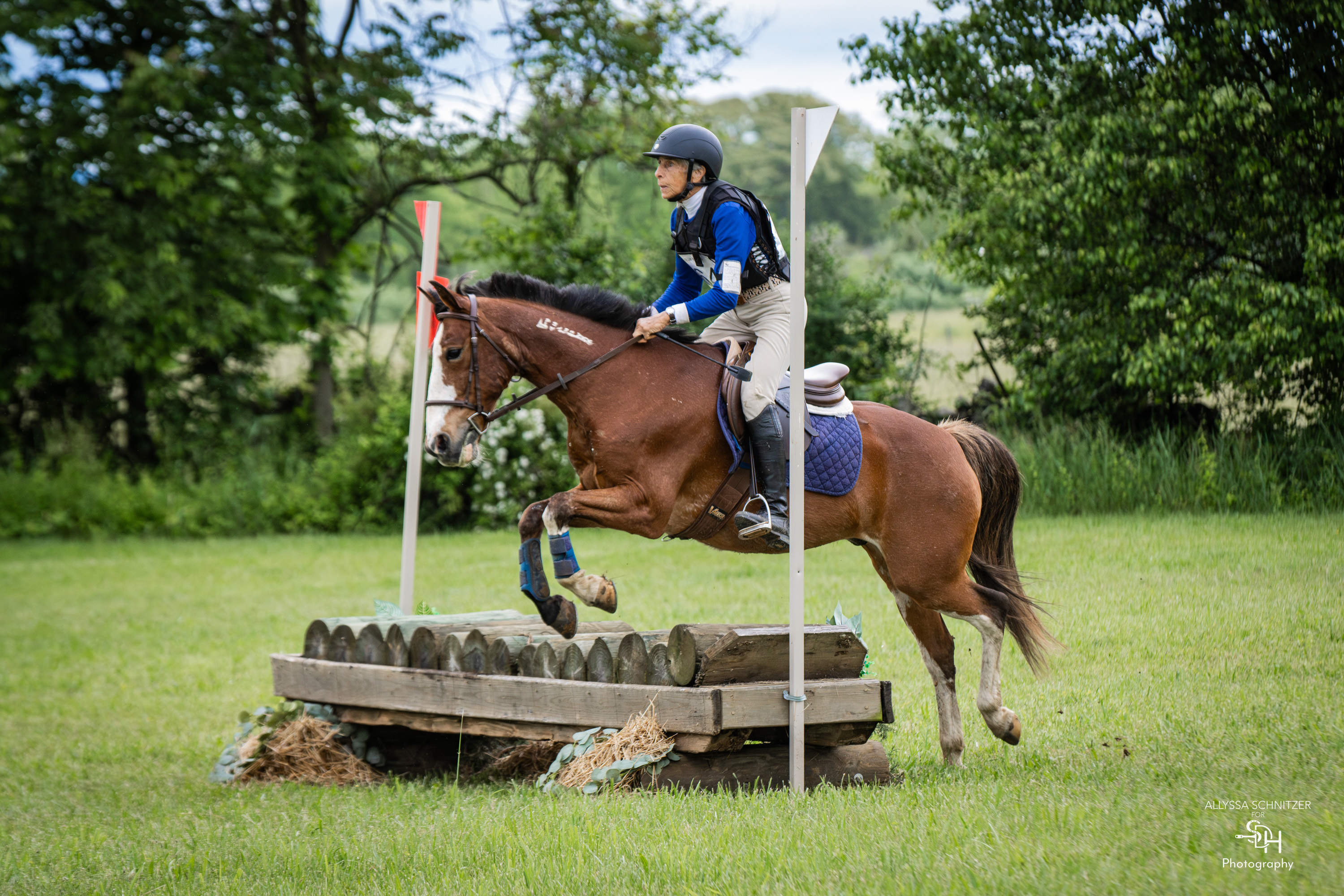
Through her barn’s connections, Graeser caught wind that the horse truly wasn’t dangerous, he had just been handled poorly. “Chip” wound up at the barn Graeser called home at the time, and the next thing she knew, he was hers.
“I was in no way a great rider, but I was fairly OK with riding the horses that no one else wanted to ride,” she noted. “They basically turned him over to me and said, ‘See what you can do with him.’ ”
Chip came with a lot of baggage, but Graeser didn’t mind. She worked through his fears and spent all of her free time just standing at his stall door talking to him. She took him to college where they played around in the hunter and jumper rings together before Graeser got married and settled down on a small farm in Williamstown, Massachusetts, where they offered boarding and Graeser taught lessons to students much like herself as a child.
“I had the kind of barn where I never really made any money, but I had a lot of good kids," she said. "I had one kid who cleaned all the tack in exchange for lessons and one of them cleaned my house for lessons and one of them babysat in trade for some lessons. We never said to anyone, ‘This horse won’t work, go buy a better one.’ Whatever they had, that is what they rode.”
That mentality led Graeser to coach students at prestigious arenas such as Madison Square Garden and Harrisburg (Pennsylvania), something she is quite proud of.
“I wasn’t as fancy as the fancy trainers, but what I was good at was getting the best out of whatever horse was there," she said. "All I have ever had my whole life are the giveaways or throwaways, and I just had to do what I could with what I had.”
The cold Massachusetts winters were not calling Graeser’s name and after her daughter, Kate Rakowski, had gone off to college, she found herself in Illinois for work for a short period of time where she put her college degree in education to work as a middle school teacher. When the opportunity to relocate to Santa Fe, New Mexico, came about one summer, Graeser took the chance. There, she not only fell in love with the Southwest but with a living piece of American history—the mustang.
“I had brought Kate’s old jumper with me, and he lived with some neighbors. One day I had gone over there to feed, and just as I was pulling in the driveway, they were pulling out. It was perfect timing really," she said. "They said to me, ‘We are going to look at the mustangs that they rounded up and brought to Albuquerque; do you want to come?’ You know horse people, you will always go and see horses! I had no intention of buying a horse, but I went with them.”
As Graeser looked over the pen of a dozen 2-year-olds at the Bureau of Land Management holding pens, a worker tossed some alfalfa into the pen, and all of the horses came running over except one.
“He was about a 3 on the body scale, and it was April, but he had a horrible winter coat, and his head was hanging very low. You could just tell he had clearly given up on fighting for food. I thought to myself, ‘He’s not going to make it,’ so I put down my $125, which is the best $125 I’ve ever spent, and brought him home.”
Graeser dubbed her new project Comic Relief, “Mic” for short. The unhandled late 2-year-old required a lot of time and patience, which Graeser had plenty of. It was as if Mic knew that Graeser had saved him, and he responded quickly to her care and attention. So she decided to keep working with him and get him going under saddle.
“I started training him, and once he could go walk, trot, and canter under saddle we moved to poles on the ground, and he started to really like his job. So I went to the barn nearest me, which was an eventing barn, and asked who I could come and lesson with once every two weeks, and that would give me some homework to work on.”
That is how Graeser connected with Lindsay Lechner and got her start in eventing.
“I called her, and I said, ‘He’s not very much to look at, and you have to promise to not laugh at him,’” shared Graeser. But Lechner didn’t laugh—in fact, she was quite impressed by Mic’s knowledge and natural ability to pick up the job.
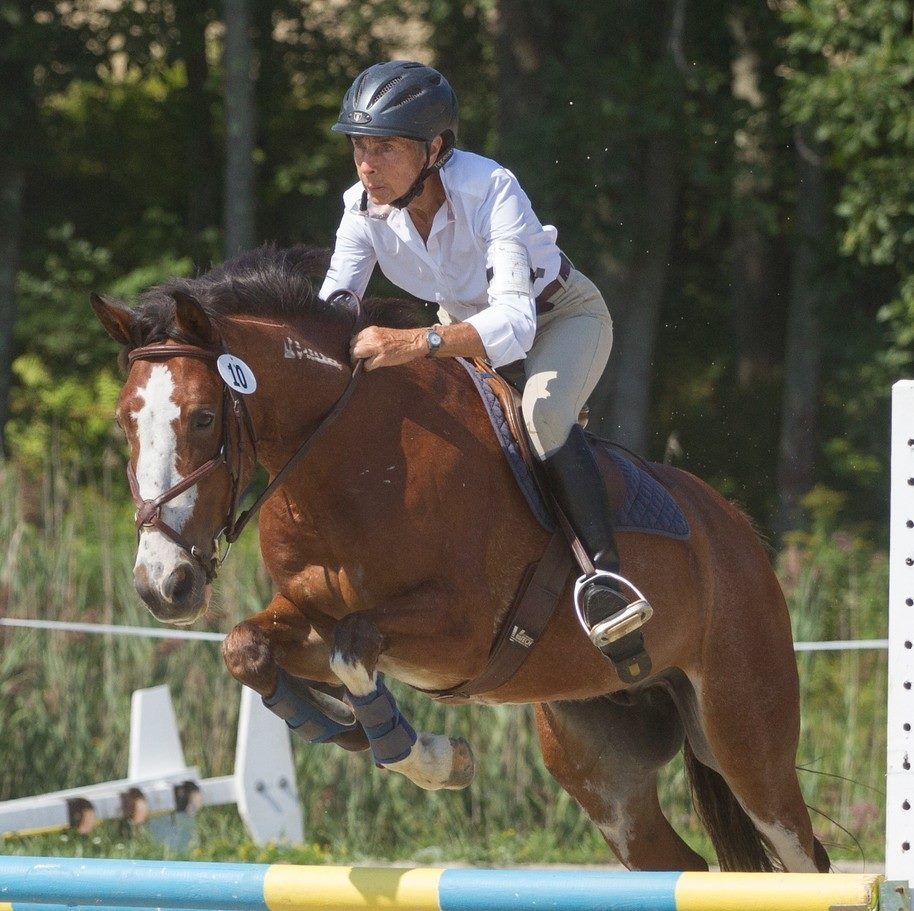
Mic and Graeser formally began their eventing career in August of 2013 at The Event at Santa Fe. After spending a few years eventing locally, Graeser and Mic began loading up and hauling out to Vermont to stay with her daughter for the summer and compete and train in Area I. She even had the opportunity to clinic with Irish Olympian Eric Smiley who told Graeser, “I don’t care what happens in your life, how bad things might get—you must never sell that pony.”
After her retirement from teaching, Graeser decided to make her way back to the East Coast. She and her daughter both sold their places, combined funds and purchased what is now TuckerBerry Farm in Radiant, Virginia. She and Mic continued to event until 2018 when she decided to semi-retire her forever friend after having 16 successful outings together over the course of their five years competing. Since then, Mic has been teaching beginner students in Rakowski’s lesson program while Graeser focused on another project horse entrusted to her care.
“He carries 5- and 6-year-olds around, and they love him, and he loves it,” said Graeser of Mic’s new career. “He gets tons of treats and is a very good boy.”
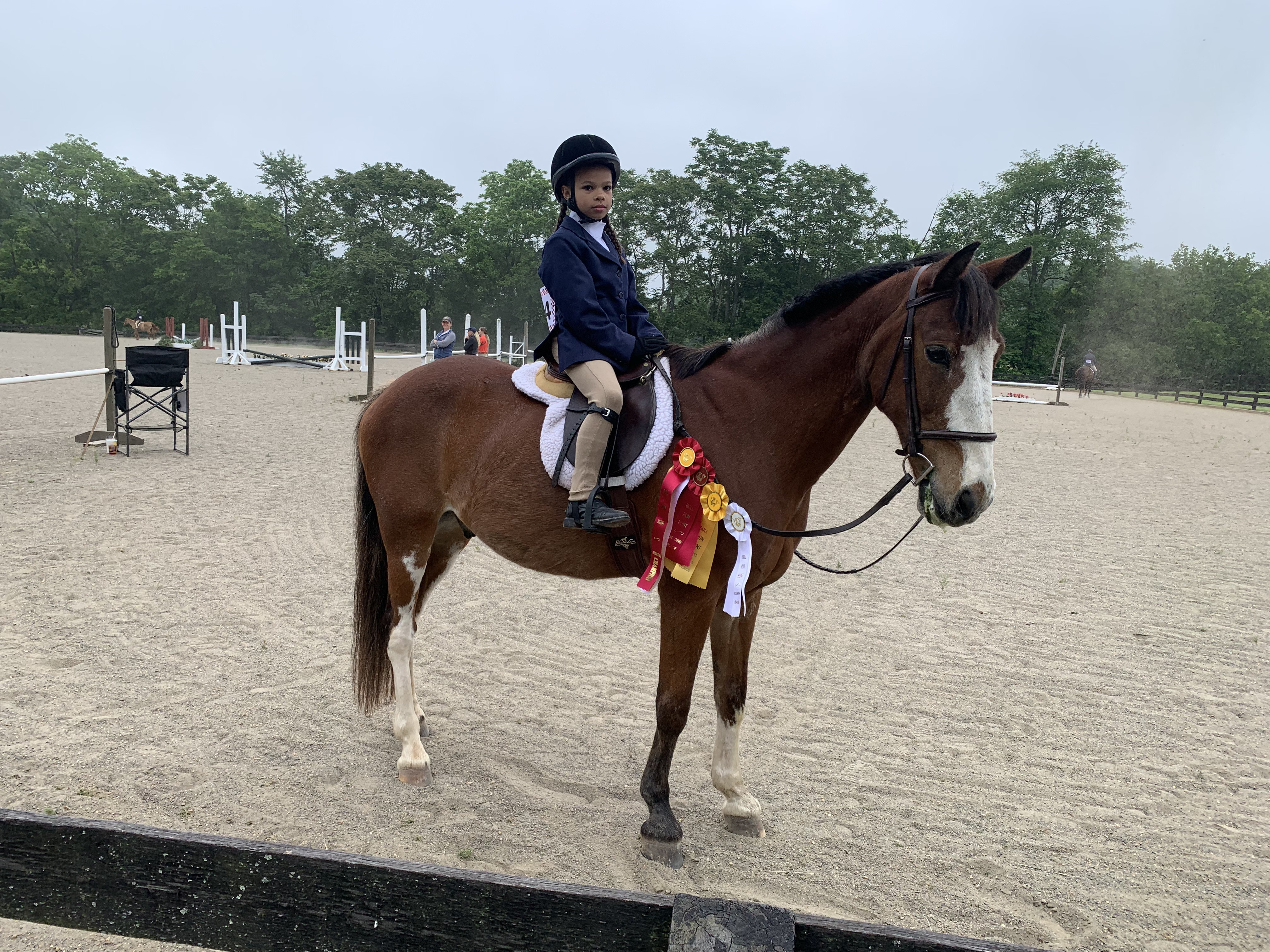
And then Graeser heard about the USEA Century Ride and thought to herself, “Wouldn’t that be fun?” So Mic, now 17, came out of retirement to help her mark off another goal from her bucket list.
“I thought it would be fun; you have to have some sort of goal to work towards, right? And I thought it would be fun for Mic to have something to his name too because he is so special," she said.
After some preparation, the pair loaded up for their first event back together at the Hunt Club Farms H.T. in Berryville, Virginia, on May 17 where they competed in the Starter division and finished second out of the field. Their combined age of 101 and successful completion made them the first pair of 2024 to be recognized with the USEA Century Ride Award.
“I am so glad I did it,” she shared. “It feels like the culmination of our partnership. We have done so much together, and how lucky am I in my retirement to be where I can feed horses every morning and see Mic so happy here?”
As she looks back over their lifetime together, Graeser had some special thank yous to share in reflection of Mic’s final hoorah in the show ring.
“If it takes a village, Mic and I got a bonus because we had two,” she noted. “In New Mexico, Dr. Leslie Adler and Amanita Thorp Berto literally saved Mic’s life when he thought a rattlesnake needed investigation. Lindsay Lechner gave Mic and me the best introduction to eventing a pair of clueless greenies could want with her knowledge, endless patience, and positivity. Also, Lindsay, we forgive you for laughing at Mic when you promised you wouldn’t. Thanks to Tom Angle and Jeffray Ryding who gave us the benefit of their knowledge and fine facility at Goose Downs Farm.
"In Vermont we were incredibly fortunate to get help from some of the best—many thanks to Sue Berrill, Denny Emerson, Laurie Hudson, Daryl Kinney, and Eric Smiley. In three states and everywhere in between, my daughter Kate Rakowski opened her heart to Mic, and to this day doesn’t let me say, 'I can’t.' And, of course, a lifetime of gratitude to Mic. You make me smile every day.”
About the USEA Century Ride Award
The USEA Century Ride Award, supported by Spokane Sport Horse Farm, celebrates horse and rider pairs who complete an event with a combined age of 100 or more. The horse and rider must complete an event at any level of competition. There is no minimum score requirement. Candidates who have met these conditions can fill out the award application here to be honored. Read more about past recipients here.

